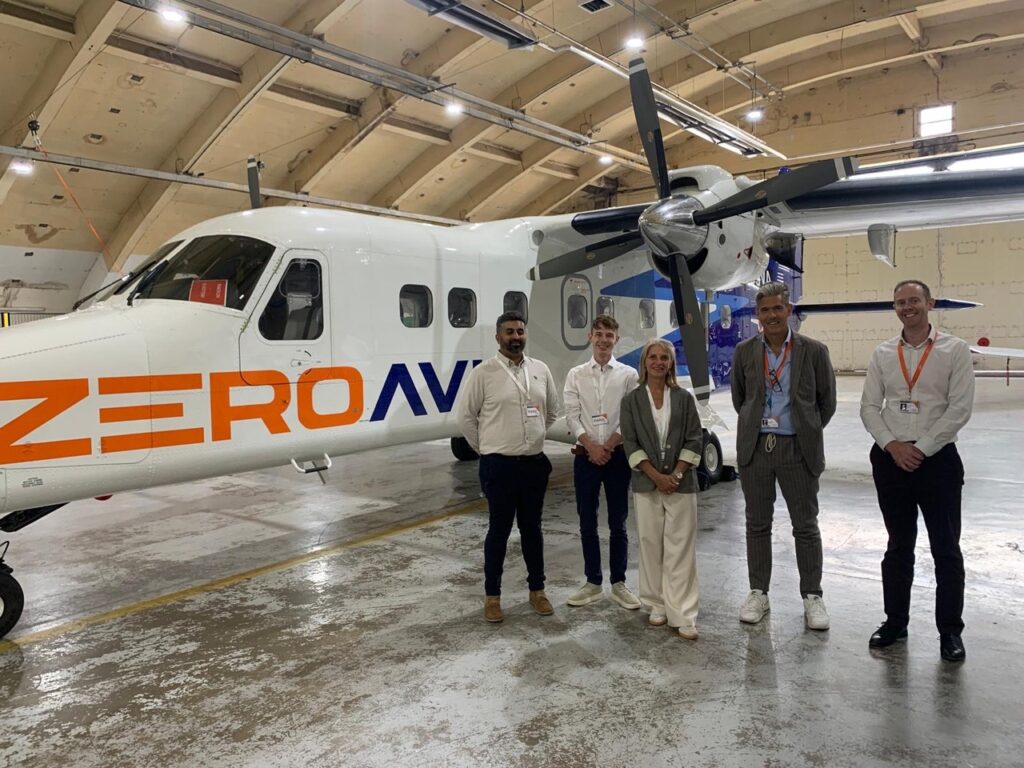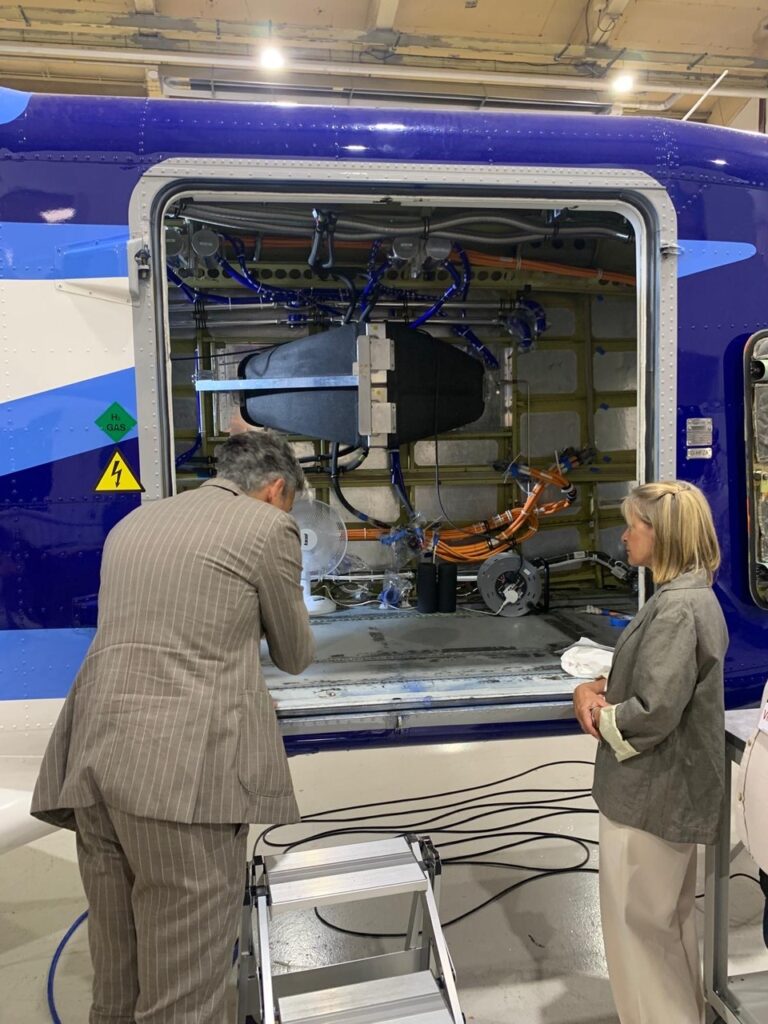On 18th August, Bath Liberal Democrat MP, Wera Hobhouse, visited the research and development Centre at ZeroAvia, based at Cotswold Airport in Kemble, in the neighbouring county of Gloucestershire.

Part of the Hydrogen in Aviation (HIA) Alliance, ZeroAvia is developing full hydrogen-electric engines for existing commercial aircraft as well as supplying hydrogen and electric propulsion component technologies for novel battery, hybrid and hydrogen-electric air transport applications.
Initially targeting a 300-mile range in 10-20 seat electric aircraft by the end of 2026, their vision is to see 700-mile range 40-80 seaters in the air by 2028.
Aviation makes up around 7% of the UK’s total CO2 emissions – the primary driver of climate change. And according to one study, once you take into account its effect on the concentration of other atmospheric gases and pollutants like ozone, methane, soot and sulphur aerosols, its contribution to global warming to date is around 4%.
Against this background, companies and research institutes are exploring cleaner, greener alternatives. ZeroAvia is focused on hydrogen-electric propulsion technologies, considering them the most practical, economical, and furthest-reaching solution to aviation’s climate and clean air impacts.
ZeroAvia has already performed several world-first breakthrough flight demonstrations of its so-called powertrain technology from the Cotswold Airport base.
As they toured around the research and development centre, ZeroAvia’s Managing Director, Gabriele Teofili, told Wera:
“Hydrogen-electric engines can reduce aviation’s climate impact in excess of 90%. The lower cost of hydrogen over time and the lower maintenance costs of our electrified powertrains will improve the economics of aviation, enhancing connectivity as more routes become economically viable.”
There is clearly confidence in the tech from heavyweight investors. Having raised over $250m from investors like Airbus, Bill Gates’ Breakthrough Energy Ventures, Barclays Sustainable Impact Capital, British Airways, Amazon Climate Pledge, Alaska Airlines, United Airlines, and most recently, the UK Infrastructure Bank and the Scottish National Investment Bank, ZeroAvia now employ more than 200 people in Gloucestershire and London.
And with over 3,000 engine and component pre-orders from leading airlines and aircraft OEMs, including American, Alaska, United Airlines and UK launch operator RVL Aviation, hopes are high for the technology.
Academic research led by the University of Bath is also accelerating, in particular at the University’s wholly-owned commercial research facility at the Bristol & Bath Science Park, the IAAPS (the Institute for Advanced Automotive Propulsion Systems).

Hydrogen expert Tim Mays, Professor of Chemical and Materials Engineering and Director of the UK-HyRES national hydrogen research hub at the University of Bath, observed:
“Hydrogen fuelled propulsion is one of the few options to decarbonise aviation in the long term. This is reflected in engineering and design innovations being generated in the aerospace industry from ambitious and growing small to medium enterprises, such as ZeroAvia, to multi-international companies such as Airbus. Hydrogen is also of interest in decarbonising airports and as a component in making sustainable aviation fuel, the latter being an option to reduce carbon emissions from aircraft in the medium term.
“While challenges remain, such as producing enough low-carbon (or green) hydrogen to meet demand, and integration of hydrogen in complex aviation systems, the prospects and opportunities of this new technology are exciting and impactful.”
Wera Hobhouse, Liberal Democrat MP for Bath, commented:
“We have a responsibility to decarbonise aviation, and while we need to continue to deliver the benefits flying offers, we must ensure this is done in a sustainable way. Hydrogen is one of the keys to that ambition.
“The Government must collaborate with the aviation and hydrogen sectors, alongside research institutes like those operated by the University of Bath and others pioneering different alternatives such as Sustainable Aircraft Fuels.
“In my position on the Energy and Net Zero Select Committee in Parliament, I pledge to work to help create the conditions that will secure the UK’s place as a global leader in the field.
“Failing to act quickly and decisively to halt aviation’s deadly effects on our environment would be just “plane” stupid.”